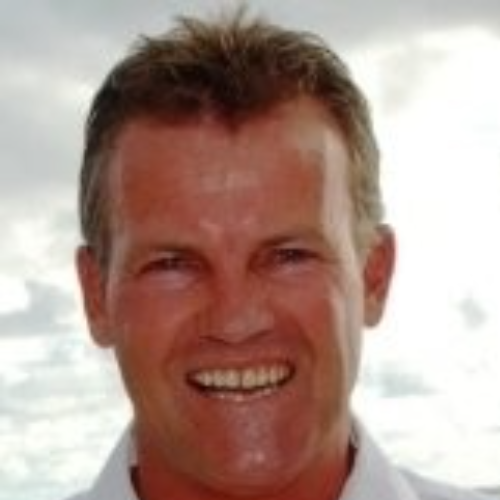Whenever Australia loses Test cricket matches, Australian cricket fans are in shock. Winning, it is said, is in our DNA. When Australia loses two matches in a series, critics say a pattern of failure is evident and when a series is lost, its catastrophe time. Hold the front page. What's to become of the national psyche? Disaster! Shame! Disgrace!
So where do we run? How about these top of the pops reasons for lack of success (as opposed to failure):
- the players are too well paid
- its the administration's fault
- the Sheffield Shield has been allowed to reach such a low standard
- there's too much one day cricket
- there's too much Twenty20 cricket
- there's just too much cricket
- the roots of the game have withered
and of course the perennial favourite ... the bloody selectors.
It could be, of course, that the game is cyclical and its just time to rebuild. Maybe this has all happened before and winning isn't in the DNA , its in the memory. A lot of cricket fans have forgotten the late 70's and early 80's when a steady flow of players passed through Baggy Greens because of Kerry Packer and Krugerrands.
No, to hell with that! Its the bloody selectors!
The latest cycle of complaint over the selection panel began with the selection of Tim Paine to face the Poms in Ashes opener in Brisbane in November 2017 and to a lesser extent, the return of the yo-yo man, Shaun Marsh and the axing of Matt Renshaw. Of course, concerns soon became muted as Australia flogged the Poms and all was right in the world. When you are winning it isn't time to have a serious look at the credentials of our national selectors. However, with Australian cricket now a distinct timeline divided by a small piece of sandpaper and a large piece of stupidity and the selectors having to occupy positions which are under great pressure, isn't it just the perfect time to light a flame under them. After all, a horse can run fast but does that mean it should be lining up beside Usain Bolt? The panel has, since John Inverarity's time as Chairman, taken time out to explain the reasons for their selections but has it really helped? In some cases, its made them more unfathomable.
Lets look at the Selectors form guide.
Trevor Hohns
The Chairman of the Australian Selectors is in his second spell on the panel. In his first, a thirteen years stretch through the 1990's and up to 2006 during much of which he was Chairman, Australia enjoyed it's most dominant period in Test cricket: breaking the hold of the West Indies as world champions; holding the Ashes for all but one year of his tenure; winning their only series in India in the last 48 years; and recording 16 Test victories on the trot, a record subsequently equaled by Ricky Ponting's side.
Hohns was responsible for launching some memorable careers, including Ponting himself, bought into the side a week before his 21st birthday to replace an injured Steve Waugh and scoring 96 before coping a dodgy lbw on debut against Sri Lanka. Slater, McGrath, Gilchrist, Hayden and Langer were just some of the stars who rose under his tenure but he also had tough moments such as the axing of Ian Healy for Gilchrist and the removal of first Mark Taylor and then Steve Waugh from the ODI captaincy. The first decision bread Waugh for the top job, the second Ponting. This was decision making with process and thought and long term outstanding outcomes, but each of those decisions was hammered at the time by media and barfly pundits alike.
As a Test cricketer, Hohns was fairly average. He wasn't even a Queensland Shield regular when he took the Krugerrand and became a rebel tourist twice in the mid 1980's and was banned for two years from Australian domestic cricket as a result. When he returned, he eventually played seven Tests, including the highly successful Ashes Tour of 1989. His contribution was minor and his career ended in 1990-91 when significantly, he captained Queensland in his last season. His first class career, was a successful one with two hundreds in his 5000 plus runs and nearly 300 wickets.
His is the longest, most proven pedigree among those on the panel. His work has earned respect through action.
Greg Chappell
One of Australia's greatest batsmen and one of the automatic picks in everyone's best Australian XI, Chappell in his third stint as a national selector.
His first, soon after his retirement as a player, oversaw and persevered with emerging talent such as Steve Waugh, David Boon and Craig McDermott ... but it also tried four wicketkeepers in in four years: Wayne Phillips, Greg Dyer, Tim Zoehrer and Ian Healy. It was his panel that pressured Kim Hughes to resign the captaincy and dropped him from the 1985 Ashes Tour.
His second stint was only ten months long from October 2010 during the last days of Ponting's time as Australian skipper. Australia lost away to India, lost the Ashes at home and won Michael Clarke's first series as captain, in Sri Lanka. Tim Paine was one of the successes of the Indian tour, having debuted a few months earlier against Pakistan in England ... yes England. Nathan Hauritz was sacked after India. Peter George played his only Test in India. Simon Katich was controversially sacked during the Ashes series, as was Marcus North. Beer, Bolinger and Doherty were all in and out through the revolving selection door during the Ashes as Australia went down 1-3 on their own wickets. Against Sri Lanka, Shaun Marsh debuted with a century replacing an injured Ponting and made 81 replacing a dropped Khawaja. Trent Copeland played his only Tests. During his tenure, Chappell was banned from the Australian dressing room by the players and was sacked as a selector during the Sri Lankan tour.
Chappell returned for his third term as a selector two years ago, initially as an interim measure, when the Chairman of the panel, Rod Marsh, fell on his sword after Australia lost the home series to South Africa. His terms on Australian selection panels have coincided with the greatest chopping and changing of players in the past thirty five years of Australian cricket.
If we factor in the controversies in his role as a coach in India and his battles, mostly personal, with the top players there and no successes in a bone dry five year stint as coach of South Australia in the early 2000's, you really have to go back to his playing days to find sustained success. However, even there you have examples of inconsistency and questionable decisions - the infamous underarm; the cloak and dagger of the Packer defection during the 1975 Ashes disaster in England; the "tour when I feel like it" approach to captaincy; and the bat paddling of a streaker in Auckland, where he was sued unsuccessfully for assault and then repeating the dose twice at the MCG in a Test v England and a ODI v the West Indies.
Justin Langer
There is no doubt that Justin Langer is taking the man management role to a much higher level than even Lehmann and through an entirely different approach. Its possible that it won't be as inclusive as Lehmann as Langer's record in previous coaching roles shows he chooses and grooms disciples. His "character over cover drives" philosophy places mental acuity and resilience as a primary capacity; more important even than physical skills. Time will tell if his guru status can earn credits at Test level but if his own career is any sort of guide, his chances of success with this approach will largely be dependent on the support his fellow selectors give him.
Other Selectors During This Time Period
Mark Waugh
Junior was a fine cricketer. Among the best two or three fielders Australia has produced, he has always bought a Keith Miller resonance to the game as both a player and then a commentator. Elegant and laid back would be two of the most often used descriptors of him. The problem with Waugh is his lack of judgment. There were times as a batsmen where opportunities were let slip because of a lack of thoroughness and a reliance purely on instinct. He seemed happy to adhere to near enough as being good enough. Being one of the boys had more attraction than having to run the hard yards.
It shows off the field as well. His commentary at times shows insight but rather than it dominating what he adds in the commentary box, it shrinks below flippancy and entertainment and at times. His knowledge of the game which should be deep and rich, seems to have nothing more to it than any casual conversation might have.
His lack of judgment has also extended to highly questionable activities involving sub-continent bookmakers during his playing days, where he was Tweedle Dumb to Shane Warne's Tweedle Dumber. No one in the sporting public understands how they didn't both attract a significant ban for their actions.
The role of selector is one which should attract gravitas and Waugh, despite his easy manner of speech on the game and undoubted experience, just doesn't have it. The role bearer should have the capacity to be patient but there is nothing in Waugh's public record in the game which indicates it is a quality he has in large supply.
Darren Lehmann
There is was no question mark over Darren Lehmann's abilities as a man manager, nor his tactical skills, nor his ability to plan strategically for the majority of his term as coach of Australia. Increasingly though, he become more manager than coach, cleverly bringing even more expertise to the side in specialist coaches, statisticians, dietary consultants, exercise physiologists ... a rather endless list. Perhaps, the list of support staff passed the saturation level but at least what was asked of the players still reminded them of the reason why they started to play the game. Perhaps some of it needs to be stripped away and more time needs to be spent with the coach, one-to-one. That said, is the manager/coach in a good position to select teams or should he be no more than adviser? Given the pressure bought to bear on the coach for results, should he have a direct say in who plays or does that pressure compromise him?
A large question mark also needs to be raised over the relationship between coach and captain. Lehmann and Clarke worked well together. There was just enough similarity left in the cross overs of their careers for it to be a successful combination but Steve Smith was a completely different, funky town skipper and its hard to know where common ground existed between them. In the end, all of those pressures led to Lehmann dropping the ball in South Africa. Sandpapergate wasn't his fault but had he been on his game, it wouldn't have happened.
Lehmann's record was outstanding during his first three years on the job but Australia had won only one of their last five series home and away at the end of his time. The coming and going of players - Shaun Marsh, Usman Khawaja, Adam Voges, Joe Burns, Peter Nevill, Matthew Wade and Matthew Renshaw - led to great instability. As coach, its something he should have been trying to avoid. Stability should have been his cornerstone goal.
Conclusion
Judgment and leadership and decisiveness and gravitas. Do our current threesome under examination have these attributes? I think Hohns deserves to graduate with distinction and Langer brings high quality prior learning to a role that is only in its third series. Chappell is the concern and his restless desire to keep changing the deckchairs in order to find short term success. He was a wonderful player but not much has happened since which encourages belief than he can offer a longer term view. He places great faith in youth and bringing it forward but seems to expect too much off them once they get anointed. Few can start with a hundred as he did. Playing successfully at the highest level of the game is one criteria but it's not either the only or the most important criteria. Trevor Hohns is the active, perfect example of that.
As a final comment, if captains are not to be included as a selector - as I think they should be - then their role in selection should be a formalised part of the process. Let them take part in the meeting by providing feedback, putting in a claim for what they want and answering questions. Let the coach have the same formal input and then both leave the job to the panel. To this end, appoint a third selector, perhaps the right Waugh this time, although he has shown a distaste for the role. Perhaps Ponting, who has shown a common sense and judgment that wasn't evident in the latter half of his captaincy. Perhaps removal from the heat of the battle soothes the greatest of old warriors. Once their blade is dull, their mind is sharper as compensation, although Warne speaks eloquently against such conclusions.
Perhaps thinking outside the conventional square might be better still and Belinda Clark invited to the party. There is no sharper mind in or around Australian cricket.
Of course, all of this needs to be balanced by context. Since Hohns returned to lead the selection panel, we have won the Ashes, lost a bitter and acrimonious series with our camp divided in South Africa; lost but performed with great credit against Pakistan in the UAE with a team whose morale had been bashed flat by the selfishness of now absent team mates; lost to a well drilled, case hardened, well led India, worthy of their No 1 status; and are doing well against a much weaker Sri Lanka. From the summer have emerged a resurgent Pat Cummins, Travis Head, Marcus Harris and although its early, Jhye Richardson and Marnus Labuschagne and making good strides. Paine, Lyon and Hazelwood have done their job. All is far from lost.
Merv Hughes says, that during his time as a selector, he often felt very isolated and alone. Just him, the three official selectors and the other unofficial twenty four million. Its a tough gig but its time for Cricket Australia to do a better job in choosing the men or in fact women, who have the skills and experience required. Its an old adage that a farmer is only as good as his cattle but anyone who lives in a rural community knows that the best farmers always seem to have the best cattle.
Join the cricket network to promote your business and expertise. Make it easy for people to search and find the people and services they need through people they know and trust.
Join the network







